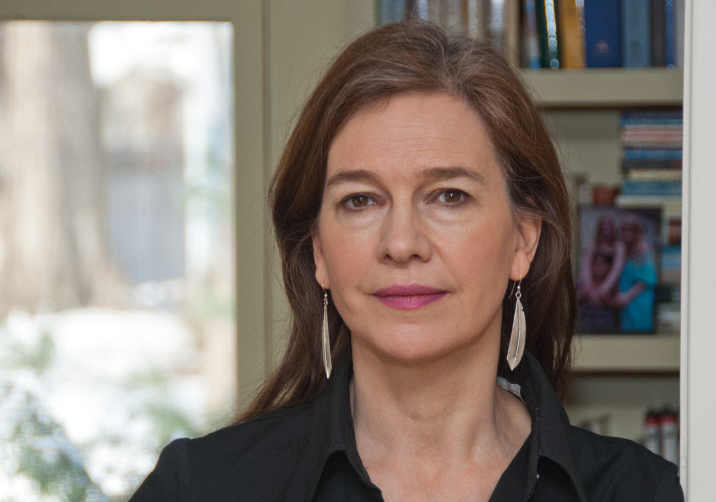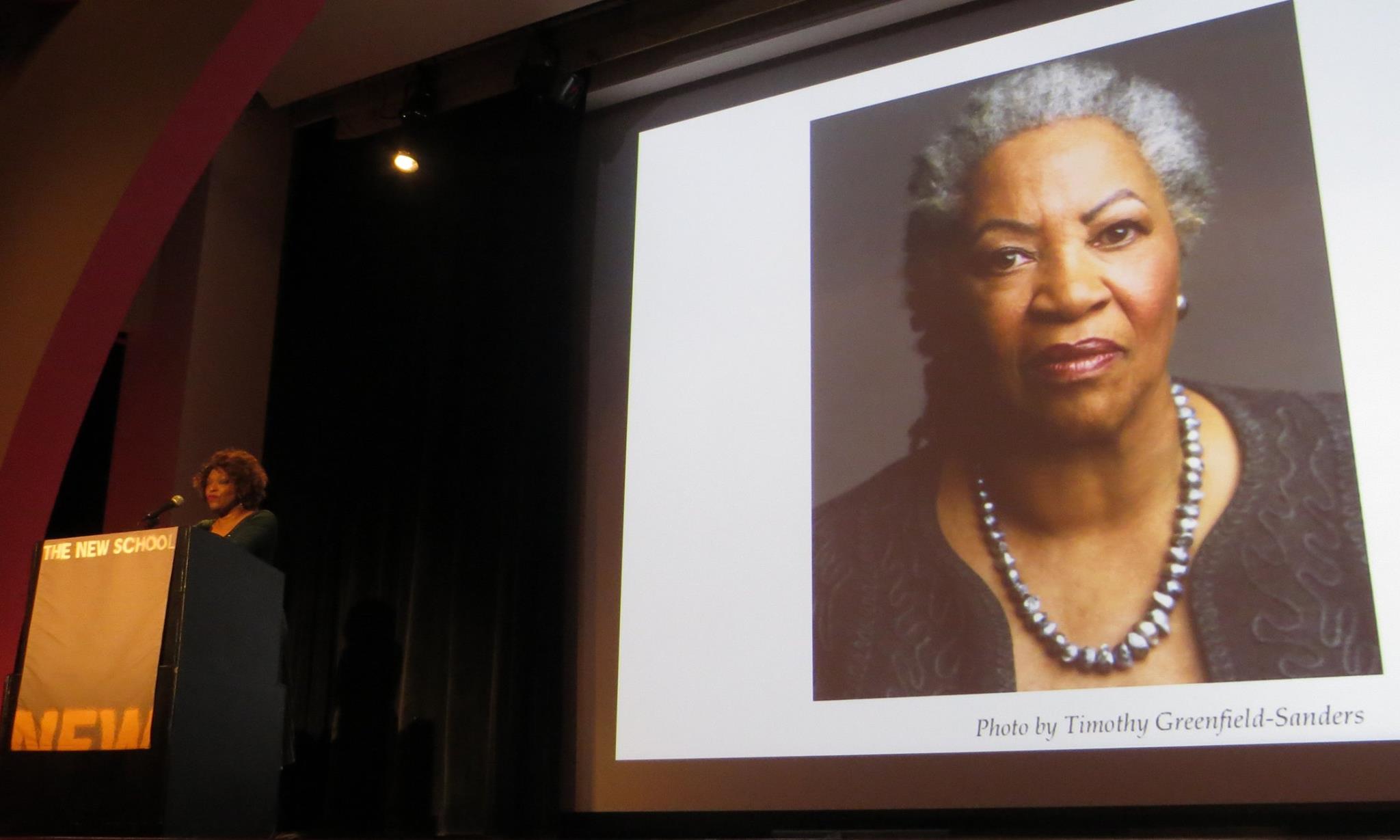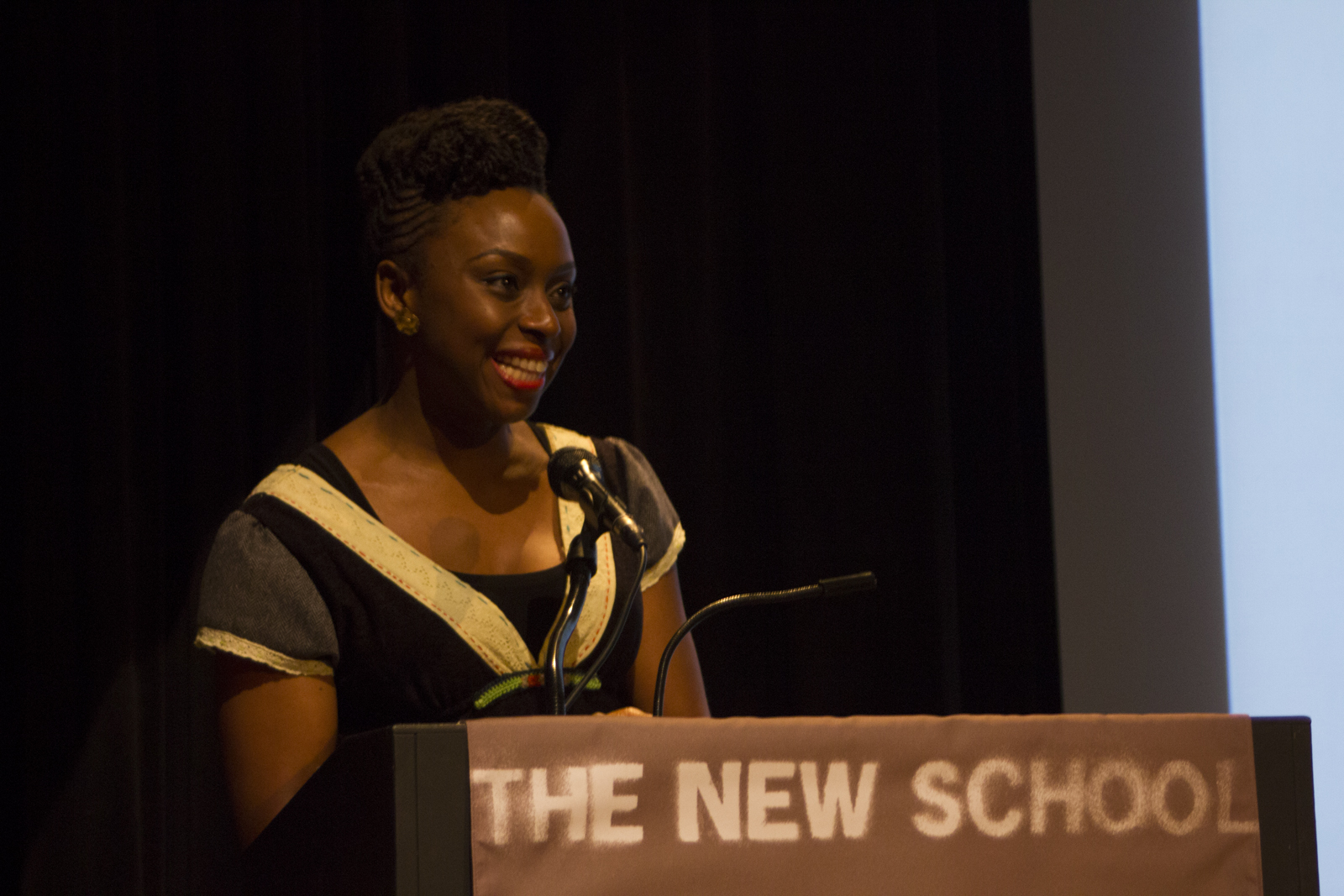 Poet and novelist Louise Erdrich, wiping tears from her eyes, accepted the National Book Critics Circle Award Thursday night for her latest work, LaRose, before a cheering audience at New York’s New School auditorium.
Poet and novelist Louise Erdrich, wiping tears from her eyes, accepted the National Book Critics Circle Award Thursday night for her latest work, LaRose, before a cheering audience at New York’s New School auditorium.
LaRose tells of two families linked by tragedy, based on a story Erdrich heard about a gun accident long ago. “And of course the story was only two lines long: ‘A man killed a boy. The man gave up his son to be raised by the other family,’ “Erdrich told Kirkus Reviews. “I never thought I’d write about it, but the story stayed with me.”
The book is “an arresting, discerning, nimble novel that takes the entirety of Native American history in its grasp,” said critic Colette Bancroft as she introduced the prize. “Within that destiny, Erdrich is saying there is room for love and laughter and forgiveness with your ancestors whispering to you all the while.”
LaRose is dedicated to Erdrich’s daughter, Persia, who accompanied her mother to Manhattan. The younger woman has – unlike her parents — become a speaker of the Chippewa language and now teaches at a Native American immersion school.
Erdrich, one of the nation’s most celebrated storytellers and winner of a 2009 Anisfield-Wolf Book Award for A Plague of Doves, has accepted many prizes. But at age 62, the Minneapolis bookstore owner brought an urgency to the stage as she called on writers and truth-seekers.
“The truth is being assaulted, not only in our country, but all over the world,” Erdrich said. “There is a great rush of deceit, and more than ever, we have to look into the truth. . . so let us dig into it, and go back to our offices and our rooms or wherever we write, and let us be fierce and dangerous about the truth. And let us find in that truth the strength to bear the truth, and the strength to demand the truth of our government.”
Margaret Atwood, honored with the NBCC’s Lifetime Achievement Award, joked about being allowed south across the Canadian border. Then she struck a similar chord to Erdrich’s.
“Never has American democracy felt so challenged,” observed Atwood, who has witnessed her dystopian classic, A Handmaid’s Tale, swoop back up the bestseller lists. “Never have there been so many attempts from so many sides of the political spectrum to shout down the voices of others, to obfuscate and confuse, to twist and manipulate and to vilify reliable and trusted publications.”
In a crisp Canadian accent, Atwood reminded her listeners of the three moves despots make to consolidate power: take over the military, stifle the judiciary and squelch an independent press.



